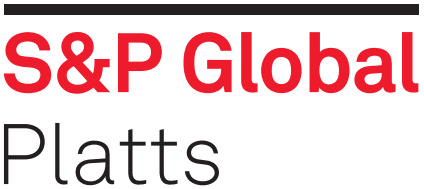
EUNIRPA, the association of European non-integrated wire rod processors, has called for current EU safeguard measures to be left untouched, Kris Van Ginderdeuren, president of the association, told S&P Global Platts on Tuesday, in response to steel producers’ request for a reduction in import quotas.
The association has written an open letter to the European Commission after Eurofer, the association of European steel producers, sent a letter earlier this month to the president of the EC asking for a reinforcement of the current safeguard measures, including a reduction of the current quota levels by as much as 75%. That request was backed by IndustriAll Europe, the federation of EU labor unions, in a letter to the EC, as reported by Platts on Monday.
“Eurofer’s request was based on grounds that steel mills are ‘essential’ to the economy, but we are essential too — the non-integrated downstream industry constitutes a continued source of technology development and creates a tremendous amount of added value. Eurofer is rather shamefully aiming to use the COVID-19 crisis as a new attempt to further weaken and ultimately eliminate the non-integrated steel industry without any consideration for the strategic importance of this industry for the economy in the EU,” Van Ginderdeuren told Platts.
EUNIRPA said in its letter that reducing available quotas under the current safeguard measures would amount, in practice, “to a near complete elimination of imports and would lead to a virtual monopolization of the EU market against all the basic principles of free competition.”
Van Ginderdeuren added that such limitations would make it impossible to buy large volumes.
In its letter the association underscored that while European mills had widely stopped production and/or deliveries within the EU due to the lockdown, a significant number of non-integrated processors are still able to continue operations because they can get their raw materials at reasonable prices from a variety of sources including outside the EU.
“Any attempt to further reduce the availability of imported feedstock would constitute a terrible blow to the non-integrated downstream industry,” it said.
The annual Turkish-origin wire rod import quota for the period July 2019 to June 2020 was exhausted on April 10, but the EU “other countries” wire rod import safeguard quota for the April-June quarter still had 48,788.44 mt available as of April 20, from an initial total of 76,0449.10 mt, according to the EC’s website.
A balance of 66,156.66 mt was left unused from the January-March wire rod quota for “other countries” and should also be transferred into the April-June quota. Turkish-origin wire rod can use a maximum of one third of the total available “other countries” quota volume for April-June.
“There are less imports so the safeguards are working so there is no need to make them tighter and any additional restrictions on imports would lead to closures and the loss of tens of thousands of jobs,” Van Ginderdeuren said.
According to the EC’s data, the EU “other countries” rebar import safeguard quota for the April-June quarter had 51,867.49 mt available as of April 20, down from an initial total of 135,728.92 mt.
“We still have a relatively large [Turkish-origin] rebar volume left to clear EU customs, which we didn’t manage to clear on April 1. We will clear more of it once the unused Q1 third countries quota gets transferred into Q2,” an EU-based trader told Platts this week.
A balance of 66,585.16 mt was left unused from the January-March rebar quota for other countries. This is expected to be transferred into the April-June quota total, and should happen by 20 working days from April 1 as per EU regulations, the trader said.
Rebar originating from countries such as Turkey which have exhausted their annual country-specific rebar quota for July 2019-June 2020 can use up to a third of the available April-June 2020 rebar quota for other countries.
“Because of the coronavirus pandemic, we are very far away from booking anything else [imported from Turkey] right now — we need more clarity related to our estimated sales in May and June before taking another position,” the trader added.
Northwest European domestic rebar prices softened last week amid lower demand and continued uncertainty regarding coronavirus-related lockdowns, with Platts assessing TSI Northwest Europe Rebar at Eur470/mt ex-works Friday, down Eur5/mt on the week.
— Annalisa Villa, Viral Shah




